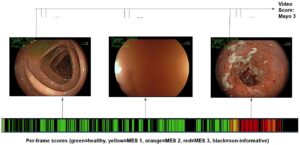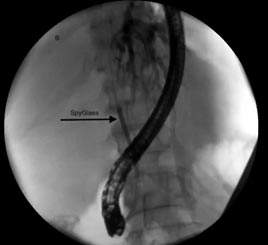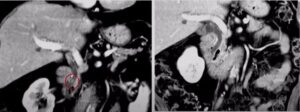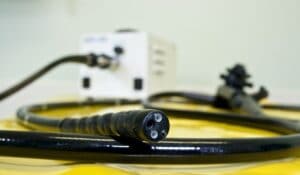Endoscopic retrograde cholangiopancreatography (ERCP) is an imaging modality used for diagnosis and treatment of pathologies in the pancreatico-biliary system. Recent developments in the field of medical image analysis and artificial intelligence (AI) can be used to improve ERCP procedural outcomes. Here is how we use AI in Diagnostic ERCP.
3D Image Reconstruction for Video-Feed and X-Ray
The first navigational challenge of ERCP is inserting the guidewire into the Common Bile Duct (CBD) through the Major Papilla, while avoiding the pancreatic duct. This is done using the live-video image from the endoscopic camera, and X-ray verification using dye injections.
Threading a wire through a narrow opening using 2D images can be difficult. 3D reconstruction of the endoscope or the X-ray images, using advanced image analysis algorithms, adds the depth dimension to the process, increases the real 3D structure perception which contributes to shorten the procedure time, and reduce bowel perforations.
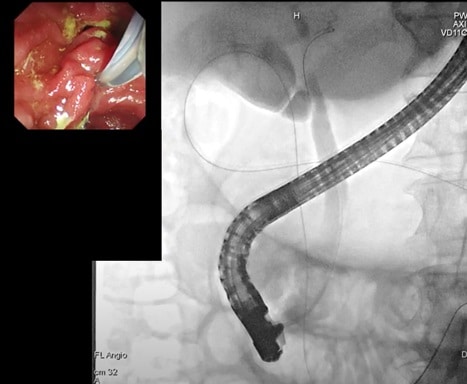
Image Registration/Fusion for ERCP
- Baseline Scan Registration: Often a CT or MRI scan of the patient is done prior to the ERCP. Both scans provide 3-dimensional data with high resolution. Registration/Fusion of the endoscopy and/or X-ray data with the pre-op baseline scan will result in a clearer image of the strictures shape and location. Having a more decisive image for ERCP may shorten the procedure and reduce redundant dye injections, resulting in fewer cases of pancreatitis.
- Video and X-Ray Registration: It is challenging to decipher a pathology from a single image. Advanced image analysis, utilizing C-Arm positioning and endoscope tracking, allows registration of the video and the X-ray images. This allows examination of suspected areas using 2 imaging modalities, with certainty that the same region-of-interest is displayed on both, an additional verification step needed for best treatment selection.
Stricture Classification
X-ray imaging during ERCP provides the ability to detect the strictures within the biliary ducts, but not the source and types of these strictures (gallstone, scar, or tumor) that needs to be decided by the physician or by a biopsy. Using ERCP procedures carefully annotated data, deep-learning algorithms can be trained to classify these constrained regions of the bile ducts accurately, provide the physician with classification scoring and, in some cases, avoid unnecessary biopsies during ERCP.
AI in Diagnostic ERCP by RSIP Vision
ERCP can benefit tremendously from the advancements in the field of image analysis and AI. Currently it utilizes two imaging modalities, without the additional value of processing the images and fusing the data from them. RSIP Vision has extensive development experience with medical imaging, including endoscopy and X-ray data, and can assist in optimizing this procedure. Our vast understanding of the ERCP field, combined with our experience and clinically proven technologies deployed in the market, gives us the needed edge to develop your custom next generation solution, gaining improved capabilities and speeding time-to-market.

 Gastro
Gastro